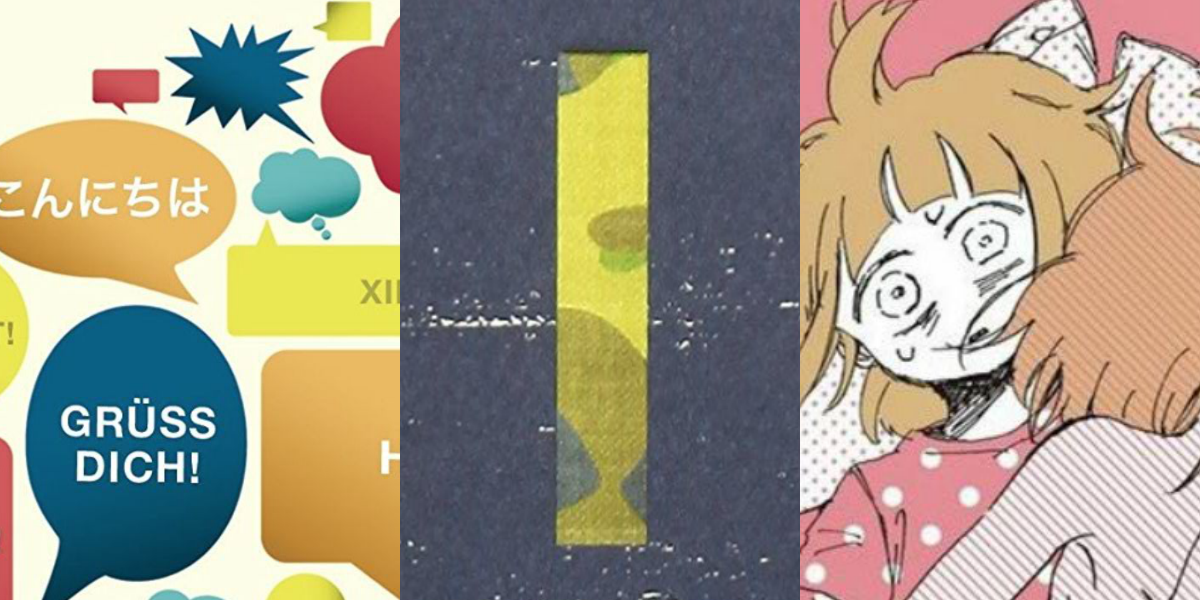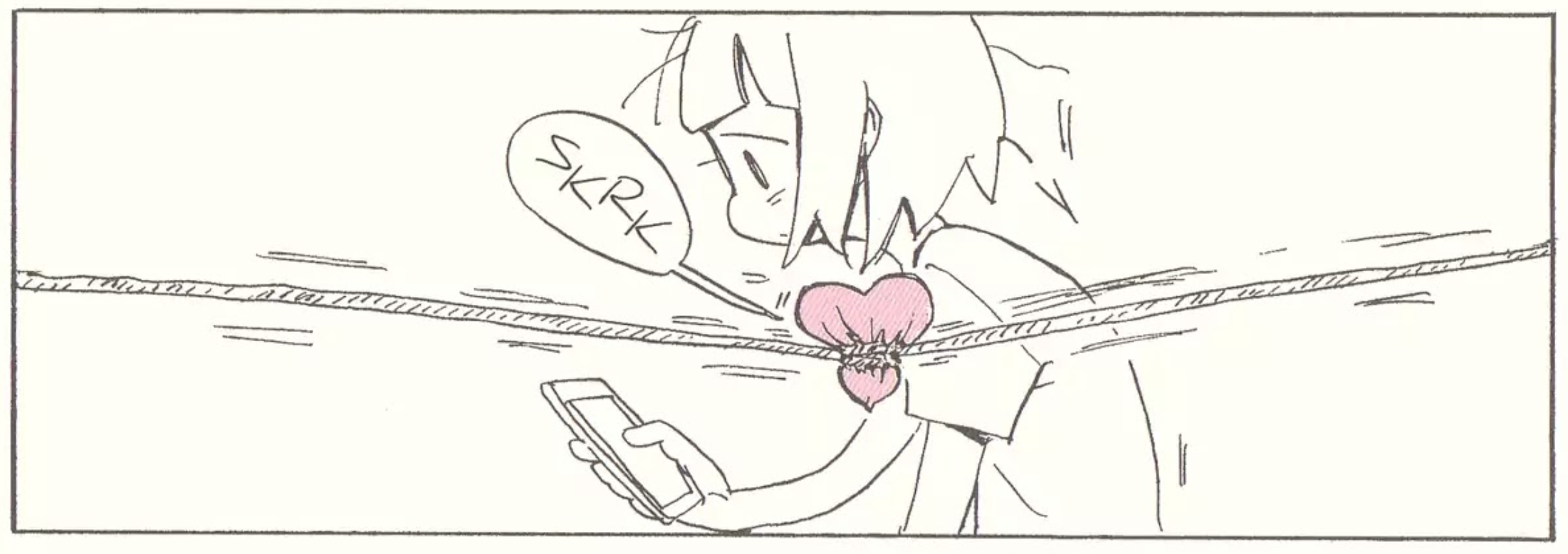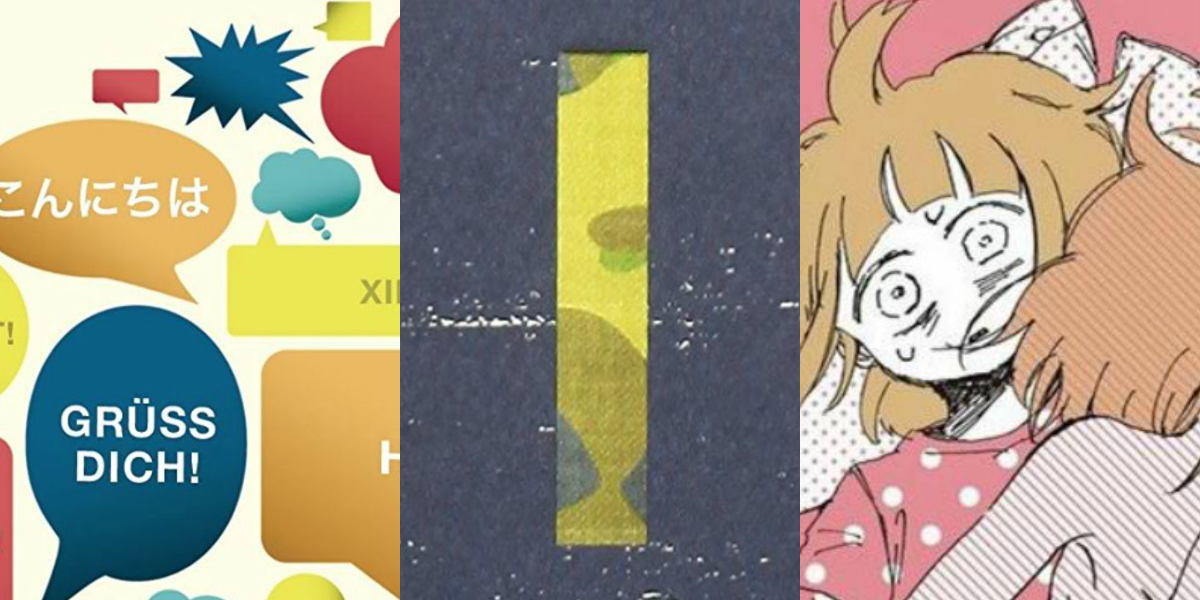
Every once in a while, you find a great book, a masterpiece. It stirs your emotions, excites new thoughts, buzzes in your heart and brain. And months later, long after you've put it down...
...you can't remember a damn thing.
That's because there's a difference between masterful and meaningful. The following books are not necessarily masterpieces, but – like nourishment for someone who's malnourished – they were exactly what I needed at exactly the right time. That is: meaningful.
This year, I read 67 books (thank you, Boston Public Library!) Of them, three changed me in some small but concrete way. You may not need the same nourishment I did in 2018, but I still hope this list will be valuable to you in 2019.
To start, here's a book that literally changed the voice in my head:

Fluent Forever by Gabriel Wyner (2014)
One time in Singapore, when I was 8 years old, I asked my Mandarin teacher if I could go to the restroom. I asked in English. She wouldn't let me go unless I asked in Mandarin. I didn't know how to ask in Mandarin. So, I chose what seemed to be the wisest action, and went right there on the floor.
Point is: I've had bad experiences with learning languages. “I just don't have the head for it,” I told myself. Language-learning was my psychological Mount Everest.
And this book was a ski lift. This book summarizes the best research in cognitive science, and applies them practically. It also introduced me to The Leitner Box, which got me to finally start and stick to a habit of practicing Spaced Repetition. (what's that? check out this explorable I made!) At first, I only used Spaced Repetition to learn French, but I now use it to remember Python, ukulele songs, and facts from various books and articles I read!
Thanks to this book, in two months I learnt more French than in my two years of Canadian high school. This might change my life in two ways: 1) I'm strongly considering moving back to Montréal, where French would be useful. And 2) by conquering my psychological Mount Everest, I've gained a lot of confidence in my ability to learn new skills.
And here's one skill I want to improve in 2019: social skills. Not the superficial, manipulative stuff, but actually deepening the emotional bonds with humans I care about. Which brings me to my second life-changing book in 2018...

Tribe by Sebastian Junger (2016)
I'm not in school. I work independently. 80% of my friends don't even live in the same state as me.
So, who is my tribe?
Tribe connects a dozen questions – why early American colonists ran away to join Native American communities (but almost never vice versa), why crime rates go down during natural disasters (contrary to false sensationalist reporting), why affluent societies have higher rates of depression & suicide (still going up in recent decades), and so on – into one, central theme:
We all need a tribe.
I still don't know who my tribe(s) are. But this book made me realize "tribalism" isn't just some primitive, destructive instinct – it's as necessary to a healthy mind & society as sleep & water. Since reading Tribe, I've put more effort into deepening my friendships: 2018 was the first year I've initiated a gathering of pals (rather than waiting for someone else to make the first move). It was also the year we did an in-person Explorable Explanations game jam, where many of us in the online community met face-to-face for the very first time.
I still feel like I'm missing some crucial friendship-deepening, tribe-fostering skills, but I'm very eager to learn them in 2019, and it's in part thanks to this book for lighting a fire under my lonely butt.
And, speaking of lonely butts...

My Solo Exchange Diary by Nagata Kabi (2018)
This is the sequel to Nagata Kabi's hit graphic novel memoir, My Lesbian Experience With Loneliness, a story of her struggles with self-harm, social anxiety, family dysfunction, which all culminates in her – as one does – losing her virginity at the age of 28 in a lesbian brothel.
It was great, but its sequel hit me even deeper, because the sequel tells the story of a very specific problem I relate to: “dealing with the fallout of publishing a popular autobiographical thing about your sexuality and painful conflict with Asian parents.”
Very specific.
Diary, unlike Loneliness, was written in installments. Chapter 1 was published as a letter to her future self, Chapter 2 was written a few months later as a reply to that, Chapter 3 as a reply to that, and so on. This creates a bizarre feedback loop: in later entries Nagata Kabi responds to her fans' responses to earlier entries. She even dates a fan (in my experience: NEVER DO THIS) who consents to being written about in the Diary.
While Loneliness was purely depressing, this book was bittersweetly heartening. Because of this "diary" format, you get to watch the author grow as a person in real time.
There's two life lessons Nagata Kabi learns and shares, that stuck with me. First, "independence" doesn't mean relying on zero people, it's actually relying on many people. The more legs a chair has, the more stable it is, and the less pressure it puts on any one leg. This helped resolve my "conflict" of wanting to be free "but also" wanting a tribe. Turns out, true autonomy requires community, and vice versa.
Nagata Kabi's second lesson is more painful. After 30 years, she finally gains the courage to admit the truth about her family:
“There was no love between any of us.”
We have a strong cultural belief that all families, deep down, love each other. And if you don't feel the love, well, maybe you're not empathetic enough. Maybe you're selfish. Maybe you're broken.
It took me a long time to realize “deep down they love me” is exactly why so many people stay in abusive relationships, and “love means never having to say you're sorry” is exactly how you create an abusive relationship.
Seeing Nagata Kabi just bluntly state the obvious truth – that some families just do not love each other – was painfully freeing for her. And for me, too: there was so much internalized shame inside of me that I didn't know was still there, until I saw Nagata Kabi reveal her shame, and her slow, long process of recovering from it.
Maybe I can learn to do that, too.
In 2018, I learnt French, Python, statistics, the ukulele, meditation, and a few habits. I'm fairly confident now in my ability to learn new things. In 2019, I want to learn how to deepen my friendships, foster a sense of tribe, and clean up my internalized messes.
In whatever small way, these 3 books helped nudge me onto this new path.
See y'all next year.
P.S:
If you're curious, here's the full list of books I read this year, in chronological order.
⭐ = more favorites!
- Guns, Germs & Steel
- Meanwhile ⭐
- Mere Christianity
- Sum: Forty Tales from the Afterlives
- Park Bench
- Deep Work
- Beyond The Messy Truth
- Zen & The Art of Motorcycle Maintenance ⭐
- The Man Who Mistook His Wife For A Hat
- Whatever Happened to the World of Tomorrow?
- Snow Crash
- Shop Class as Soul Craft
- The Serengeti Rules
- Nonlinear Dynamics, Mathematical Biology & Social Science
- Cloud Atlas
- Where The Sidewalk Ends
- The Machinery of Life ⭐
- Drawing On The Right Side of the Brain ⭐ (ignore the second-to-last chapter)
- The Metaphysical Club
- Why Don’t Students Like School? ⭐
- I Am A Strange Loop
- Siddhartha
- On Writing Well
- If On A Winter’s Night A Traveler ⭐
- Fluent Forever ❤️
- The Martian
- Laika
- The Picture of Dorian Gray
- The Brain That Changes Itself
- Phantoms in the Brain
- The Tao of Pooh
- The Crooked Timber of Humanity
- The Lifecycle of Software Objects ⭐
- March Trilogy ⭐
- Station Eleven
- Democracy (by the Logicomix folks)
- Tribe ❤️
- The End of Education
- We Learn Nothing
- Enlightenment Now 😕 (given I already agree with the premise of this book – that on many metrics the world is getting better – and that I already liked Pinker's previous books, this one was disappointing. Needlessly snarky, sloppy statistics. For a more nuanced, rigorous defense of the same idea, please read Our World In Data!)
- The Old Man & The Sea
- Histoire de Babar, Le Petit Éléphant (my first French book!)
- The Book of Why ⭐
- Trashed
- My Lesbian Experience with Loneliness ⭐
- The Adventures of Lovelace & Babbage
- The Inner Game of Tennis
- Flow: The Psychology of Optimal Experience
- On Writing
- My Solo Exchange Diary ❤️
- Why We Sleep ⭐
- Invisible Cities
- everyone’s an aliebn when ur a aliebn too ⭐
- The Subtle Art of Not Giving A F*ck ⭐
- The Pervert ⭐
- War Is A Force That Gives Us Meaning
- Identity: The Demand for Dignity and the Politics of Resentment
- A Contract With God
- Saga: Volumes 1 to 9
- Quantum Mechanics: The Theoretical Minimum ⭐ (note: still halfway through. it is a dense book)
- Arab of the Future 1, 2 & 3
- Meditation for Fidgety Skeptics
- Food Rules
- How To Think
- My Monster Boyfriend 🍆
- Free to Learn ⭐
- Changing Planes
Also, here's 3 academic papers I read this year that deeply influenced me:
- Small Wins: Redefining the Scale of Social Problems [pdf]
- Living Well: A Self-Determination Theory Perspective on Eudamonia [pdf]
- Effective Learning Techniques (Scientific American version [pdf]) (Original paper)
